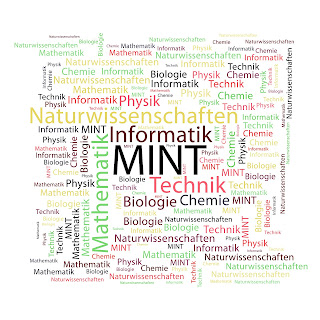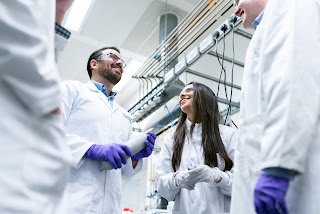Deep Technology: Innovative Engineering to Change Life
Flying cars in space and development of COVID vaccine through genome sequencing by Pfizer-BioNTech and Moderna were among few incredible, drawing people’s intrigue in “different/unique” technology innovations. Let us know more.
What is Deep Technology? Deep technology (or deep tech (DT)) represents any disruptive ‘fundamental’ scientific cross-discipline (or combinatorial) innovation that can reliably and durably deliver life impacting solutions (product/service). These innovations center mostly around significantly addressing social, industrial, economic, and environmental challenges. The DT solutions are often focused on B2B delivery model. Partial deep tech deployment is being tried in various industry segments across the globe. Since current DT looks to tap future, most companies working in it are startups.
Sciences Driving Deep Tech: STEM (Science (Physics, biology, chemistry, & medicine), Technology, Engineering, & Mathematics).
- Deep tech startups (pace of prototype development & market reach)
- Investors (funds, business network, & mentoring)
- Corporations/industries (tech integration, industrial, & commercial capabilities)
- Academic & research institutions (talent & IP)
- Facilitators/accelerators (networking, mentoring, facilities)
- Government (basic research funding & framing conducive fiscal & legal policies for innovation)
- Users
Examples of Deep or Transformational Technologies: Artificial Intelligence (AI), Natural Language Processing (NLP), Machine Learning (ML), Robotics & drones; Biotech (including synthetic biology), Photonics & electronics, advanced materials, reality extensions (Virtual Reality (VR), Augmented Reality (AR), Mixed Reality (MR)), Internet of Things (IoT), autonomous systems, Blockchain, Distributed Ledger Technology (DLT), 3D Printing, Quantum Computing & cognition, nanotechnologies, to mention some.
Some Famous Companies Involved in Deep Tech Development/Investment: Moderna, Pfizer, BioNTech, SpaceX, Blue Origin, Facebook, Amazon, Google, Ginkgo Bioworks (as per some internet sources)
Key Deep Tech Centric Industries: Agriculture, computing, life sciences, green tech, chemistry, industrial tech, aerospace, telecom, green energy
Deep Tech Uses: Some compiled examples of deep tech use across various segments, at various adoption levels in various parts of the globe:
- IT & Communication: 5G Networks
- Healthcare & Life Sciences: Disease diagnosis, treatment development, disease prevention (like vaccines), omics, AI & ML driven medical devices, Biotech, synthetic biology, etc.
- Farming: AI driven inputs assessment & prediction to achieve desired agricultural output in quantity & type (like protein rich crops), vertical farming, robotics leveraging agricultural tools & techniques, etc.
- Environment: Advanced plastic recycling, Hydrogen & renewable fuel cells, green tech (or clean tech), relevant data & tech to reduce damage by humans on climate change, etc.
- Space: Aerospace tech
- Transport: Shared mobility, last mile delivery, automating vehicles, etc.
- Internet of Things (IoT): Smart homes, assistant robots, etc.
- Autonomous (Self-Operating) Systems: Cyber security systems, self-driving vehicles
- Factories/Production Units: 3D printing or additive manufacturing for manufacturing parts production, materials development (like 2D materials), Industrial Internet of Things (IIOT), robotics, etc., are deep tech driven automation technologies, setting up for fourth industrial revolution, Industry 4.0
- Finance: AI based Risk modelling, fraud detection, etc.
- Education: AR/VR driven toys & learning systems, etc.
- Point of Use Sensing Devices: For security, medical safety, environmental preservation, etc.
- Optimal Battery Usability & Durability: Solid state batteries & flow batteries, fast charging, etc.
- Workforce Development: Digital employees
- Electronics: Computing system architecture, semiconductors
7 Most Active Deep Tech Startups (in the descending order of number of companies working on these technologies, according to the 2019 Hello Tomorrow report. Image: The Syntax Systems, India)









Quite comprehensive and detailed .
ReplyDeleteThank you!
DeleteVery detailed analysis..
ReplyDeleteThanks very much! Hope you found it useful.
Delete